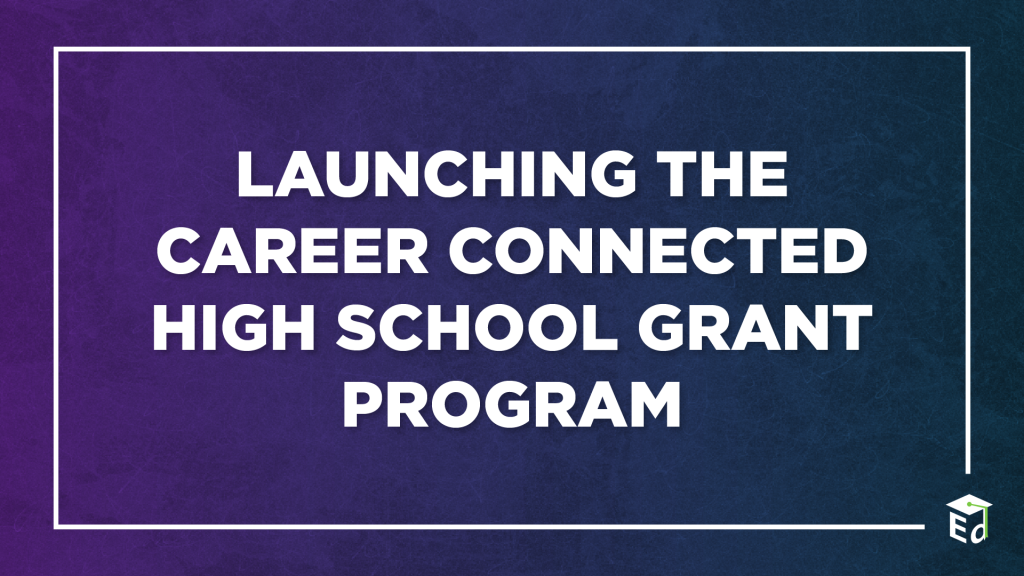
For far too long, there have been invisible walls between K-12, higher education, and workforce systems treated like they’re set in stone. That you need to complete one before moving on to the next. But the reality is that there’s a lot more overlap, and it’s time to Raise the Bar and reimagine high school in this country.
That means that in high schools of the future, college is one, but not the only, pathway to a brighter future. And in high schools of the future, every student graduates with the tools they need to “Unlocking Career Success.”
That’s why today, at the Unlocking Pathways Summit in Aurora, Colorado, U.S. Secretary of Education Miguel Cardona announced the launch of a new $25 million Career Connected High School Grant program. This program will provide grants to consortia of local educational agencies, institutions of higher education, and employers to pilot evidence-based strategies to increase the integration and alignment of the last two years of high school and the first two years of postsecondary education to improve postsecondary education and career outcomes for all students.
These grants – and these summits – are part of the Raise the Bar: Unlocking Career Success initiative, aimed at helping young Americans access good-paying jobs created by President Biden’s Bidenomics agenda. This cross-government effort seeks to increase and expand access to high-quality career pathways to help young Americans pursue jobs in today’s in-demand fields and be prepared for careers of the future. These summits, which are co-hosted by Jobs for the Future and partnering federal agencies, including the Departments of Labor, Commerce, Energy, and Transporation, bring together state and local leaders to discuss their youth workforce strategies and efforts that they can lead to create high schools of the future and ensure that every student is on a path to success.
Grantees can use funds for a variety of different activities based on the need of the region, including additional dual enrollment classes, covering the costs of tuition, books, supplies, and other related expenses for low-income students, tutoring, other academic supports, transportation for students to work-based learning sites, the development of new career & technical education (CTE) programs in high-growth fields like clean energy or to support teacher training and new equipment that may be needed to launch these programs.
The notice inviting applications (NIA) is now live here, and for more information about how the Department is working to strengthen college and career pathways sign up for our newsletter here.
Together, we can Unlock Career Success for all of our students.
